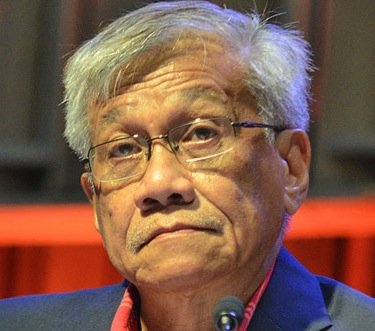
When I resigned from the House of Representatives in March 2015 owing to principled differences with the previous administration, including then President Aquino’s obstinate refusal to accept command responsibility for the Mamasapano debacle, the final appeal in my farewell speech to my colleagues was for them to pass the Bangsa Moro Basic Law since it was, in my opinion, “our last best hope for achieving lasting peace in Mindanao.”
The BBL collapsed, derailed by Mamasapano, Aquino’s stupid, self-inflicted wound, and the opportunistic, incendiary Christian chauvinist rhetoric of demagogues like Senator Alan Peter Cayetano. The peace process ground to a halt, and when President Duterte assumed power, what replaced it was vague talk about federalism and equally vague plans about bringing the different Moro insurgent groups together to collectively negotiate a peace agreement with the government.
Federalism has, so far, been empty talk because it was never more than an empty, though seductive, idea in Duterte’s mind. As for Duterte’s plan to have the government negotiate collectively with all the Moro factions, this naïve idea, as Mindanao expert, Professor Nathan Quimpo of Tsukuba University, predicted, has simply wasted valuable time since there is no way these rival groups are going to seat together at the same table.
Politics, however, does not stand still, and the hiatus in the peace process has led mainly to the loss of credibility for the Moro Islamic Liberation Front, the previous administration’s negotiating partner, and the shifting of the momentum to the ISIS-linked groups like the Abu Sayyaf and the Mautes.
Marawi: Waiting to happen
To those following increasingly alarming trends in Western Mindanao, Marawi was an event waiting to happen.
Now Duterte, in panic, has opted for the military solution and compounded this mistake by calling for US military assistance, which is precisely what the radical Islamists want, in order to gain more recruits for their jihad. True, Duterte inherited a problem, but he has made it worse with his policies or, more appropriately, non-policies.
The Duterte base will, Mocha-like, unquestioningly follow der Fuhrer and see his problems as brought about by imagined “dilawan” plots or sabotage by disloyal elements in the AFP unwilling to deliver a victory for their president. Impatient for magical solutions, they find it hard to understand that military force cannot solve problems which demand political solutions. They fail to comprehend that a massive military reversal brought about by a political debacle cannot be conjured away by resorting to empty-headed nationalist sloganeering like, “By June 12, the flag of the Philippines will once more fly proudly over Marawi City.”
It is doubtful that these fanatics will be brought to their senses even when, God forbid, their counterparts on the other side, the radical Islamists, bring their campaign of systematic terror to the national capital region.
End of the Democratic Republic?

With the BBL for all intents and purposes dead, there is no easy solution in sight. The only thing that is clear is that the government has no choice but to go back to square one and work to achieve a political settlement, no matter now difficult that may be.
The problem is that, despite the lessons of Marawi, the Duterte crew does not realize it has a problem, and is convinced that there is nothing that more firepower, martial law, and more drunken boasts about “smashing the enemy” will not solve. With their policy disarray in so many areas, from foreign affairs to economic strategy to poverty alleviation, the Duterte gang is set to accomplish no mean feat: outstrip the previous Aquino administration in incompetent governance.
But then, this is not unexpected since this president came to power with only one clear policy: to indiscriminately kill off thousands of people suspected of drug use.
With his deadly mix of incompetence, policy fiascos, and authoritarian ambitions, Duterte may yet preside over the collapse of the democratic republic and, along with it, the dismemberment of the Philippine nation-state.
To some, that may come across as divine retribution for a citizenry that foolishly voted a mass murderer to power. To those who are not theologically inclined, however, it underlines the urgency of citizen action to avert our country’s spiralling descent into the abyss. – Rappler.com
Walden Bello made the only recorded resignation on principle from Congress in March 2015 owing to his refusal to countenance the policies of the Aquino III administration. Currently professor of sociology at the State University of New York at Binghamton, he is the author or co-author of 20 books on the Philippines, Asia, and global political economy.